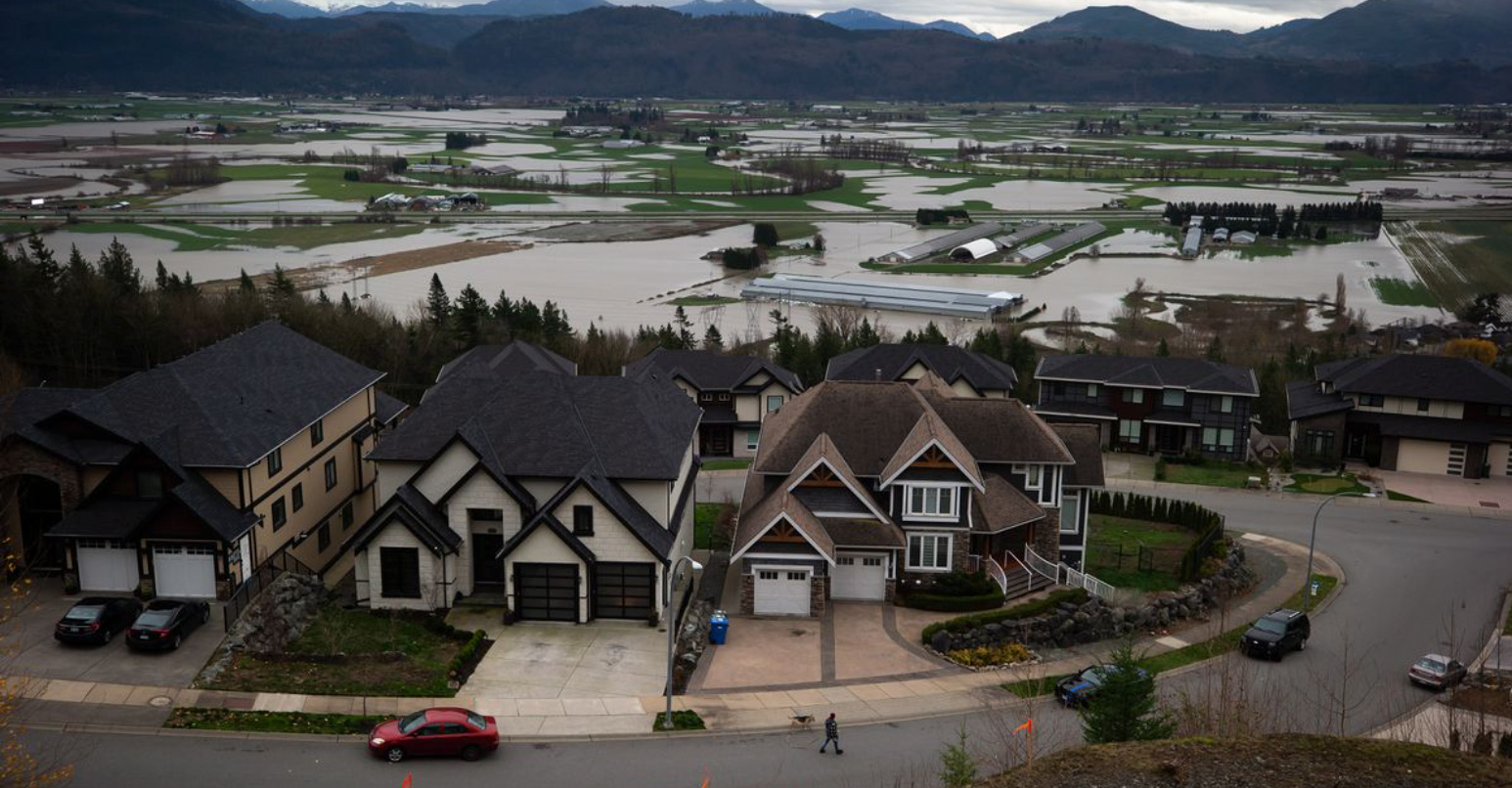
British Columbia broke several heat records on Wednesday, with warmer temperatures contributing to localized flooding in the province’s central and south coast, triggered by a series of rain showers.
As the province navigated its way through the third in a series of atmospheric rivers, local leaders expressed cautious optimism that extensive repair and preparation efforts, including round-the-clock sandbagging and dike banks, would effectively protect . The worst is already in the flood-affected areas.
Armel Castellan, a warning preparedness meteorologist with Environment and Climate Change Canada, said Wednesday that the third atmospheric river, which arrived in B.C. on Tuesday, has already produced about 200 millimeters of rainfall and more than 100 millimeters of precipitation on the outer coast of Vancouver Island. had done In the East Fraser Valley and near Squamish and Howe Sounds. There was a chance of rain once again on Wednesday evening.
But the rain was accompanied by record-breaking heat, which melted the snow that was later washed away by floodwaters, Mr Castellan said.
“An atmospheric river brings not only moisture, but heat – and it is bringing it significantly above the height of the top of the mountain, above 3,000 metres,” he said at a news conference. “So, very, very hot, a lot of snow, in addition to what we’re seeing in terms of precipitation.”
The hottest temperatures on Wednesday were in the South Okanagan region of BC. Temperatures in Penticton peaked at 22.1 early Wednesday afternoon, according to preliminary data provided by Environment Canada meteorologist Bobby Sekhon. It broke Penticton’s previous daily record of 11.2, which was set in 2012, and is one of the warmest December days ever recorded in Canada, although the department has yet to officially confirm the temperature. Is.
Meanwhile, Summerland rose to 20.4 by noon on Wednesday, up from its previous daily record of 18.5 set in 2007, Mr Sekhon said.
On Tuesday, Lytton — the B.C. village that broke the national heat record by peaking at 49.6 on June 29, before burning to the ground the next day — set an initial new daily record of 15.3. The previous record of 12.2 was set in 1933.
This follows record rainfall in many parts of the province, particularly in the eastern Fraser Valley. Abbotsford, which continues to experience local flooding, received about a third of its normal annual rainfall in the month of November, with an accumulation of more than 540 millimeters – 99 millimeters more than its previous record. Abbotsford and Hope broke 24-hour records for rainfall during the initial atmospheric river in mid-November with 100 and 174 millimeters, respectively, Mr Castellan said.
He said Environment Canada is also tracking Nanaimo, Victoria, Vancouver and Abbotsford, which have broken seasonal rainfall records for September, October and November.
“We have moved from some extremes to another and, unfortunately, this is in line with what climate change is presenting for all parts of Canada, including the mid-latitudes in BC,” said Mr. Castellan. said.
“This is not to say that it is always going to peak at all times – we will certainly see lulls – but the frequency, the amplitude of these events, and their longevity, individually, will continue to increase with the coming years and decades. “
Meanwhile, Abbotsford Mayor Henry Braun said regional water modeling estimates show a stabilization of overall water levels. Overnight patrols are underway at Sumas Dyke and the evacuated Huntingdon Village area, to monitor for any change in conditions. Across the border, officials in Whatcom County in Washington state said the Nooksack River had breached and its banks were not expected to overflow, while officials in Sumas, Wash., said floodwaters in the city were receding.
Mr Braun cautioned that rainwater and snow melt from the Baker, Vedder and Sumas mountains continued, causing water levels to rise unexpectedly in some areas of the community, and assessing flood-related damage to some homes. could. Re-evaluation has to be done after new local floods. However, if the weather continues to cooperate, the city may soon be able to lift some evacuation orders, he said.
“We are also focusing on homecoming plans for all of our displaced residents, while we keep an eye on the weather forecast,” Mr Braun told a news conference. “I look forward to a time when we no longer have the term ‘atmospheric river’ included with weather forecasts.”